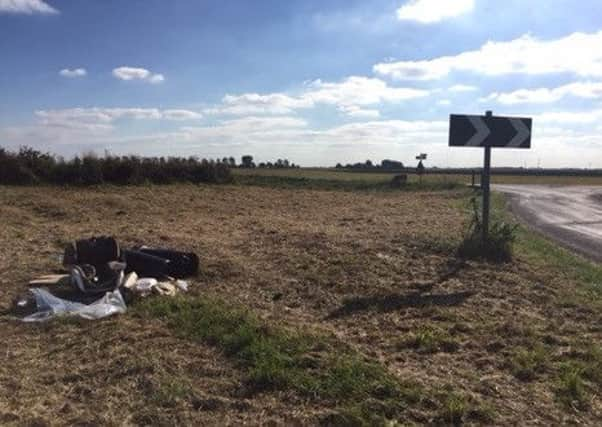Tattershall man ordered to pay over £2,300 for fly-tipping


After finding re-directed mail, postcards and a car parking ticket with his car registration clearly printed, North Kesteven District Council officers eventually traced Martin Godwin, serving in the RAF, through the military housing team and DVLA.
At Lincoln Magistrates’ Court on Jan 14, Godwin, aged 40, of Castlefields, Tattershall, pleaded guilty to fly-tipping the rubbish at a remote location on New Road, Blankney Dales in May 2015, four months or so before the it was reported.
Advertisement
Advertisement
After initially stating that he did not realise it was an offence, Godwin was very apologetic and praised the council officers for their diligence in tracking him down.
The court gave him full credit for an early guilty plea and imposed a fine of £1,250 with a victim surcharge of £120.
He was also ordered to pay the council’s legal, investigation and clean-up costs in full, which came to £1,024.79 – all totalling £2,394.79.
Coun Richard Wright, the council’s Executive Board member with responsibility for Environmental Health said: “The district council has never tolerated fly-tipping and pursues it robustly whenever and wherever it becomes aware of it.”
Advertisement
Advertisement
“A prime motivation behind our robust stance against fly-tipping is the broader education and awareness of the wider public as much as an environmental vigilance – which is especially important in a case such as this where I find it completely unbelievable that someone would claim to not know that it is an offence to blight our countryside with rubbish.
“It is unfortunate that this was another of those cases where someone has gone to great lengths to dump rubbish in a remote place.
“Had they used the same amount of thought and care in acting responsibly, driving to a tip or arranging for a bulky waste collection they would have saved themselves time, trouble and expense and not caused such environmental harm.”
During 2014/ 15, the council responded to almost 1,000 incidents of reported fly-tipping , spending nearly £75,000 on its investigation and removal.